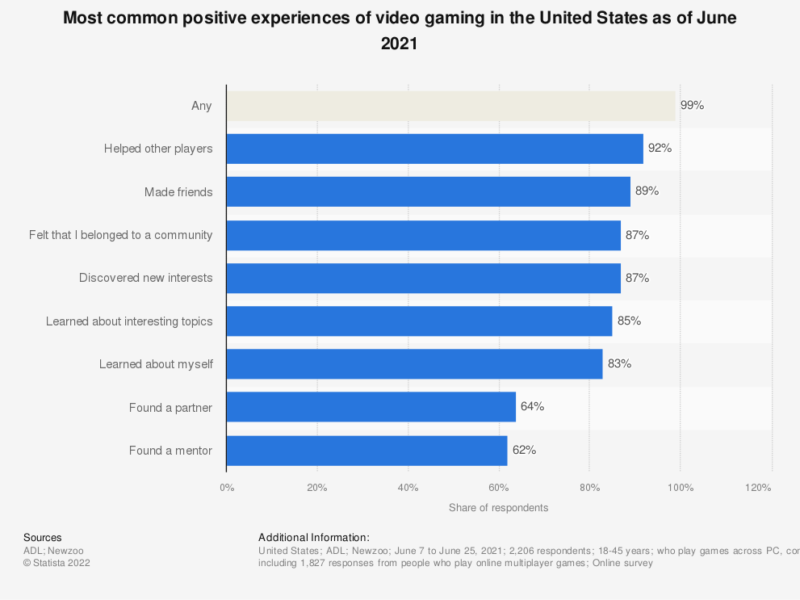Introduction
The rise of gaming culture
The rise of gaming culture has been a significant development in recent years. With the advent of online gaming, gamers from all over the world can connect and compete with each other. This has led to the formation of gaming communities and subcultures, where players can share their experiences and knowledge. Gaming has also become a popular form of entertainment for many people, with events such as gaming conventions and tournaments drawing large crowds. The rise of gaming culture has also had an impact on other industries, such as music and fashion, with many artists and designers incorporating gaming themes into their work. Overall, the rise of gaming culture has had a profound impact on society, shaping the way we interact with each other and influencing popular culture in a variety of ways.
The misconception of gaming as a waste of time
The misconception of gaming as a waste of time is a common one, but it is far from the truth. Gaming can actually have numerous benefits, including improving cognitive skills such as problem-solving, decision-making, and spatial awareness. It can also provide a sense of community and social connection through online multiplayer games and gaming events. Additionally, gaming can be a form of stress relief and relaxation, allowing individuals to unwind and escape from the pressures of everyday life. It is important to recognize the positive impact that gaming can have on individuals and society as a whole, rather than dismissing it as a mere waste of time.
Gaming as a tool for education
The use of gaming in classrooms
The use of gaming in classrooms has become increasingly popular in recent years. Educators have recognized the potential of gaming to engage students and enhance their learning experience. Games can be used to teach a variety of subjects, from history to math to science. They can also help students develop problem-solving skills, critical thinking, and teamwork. Additionally, gaming can be a valuable tool for students with learning disabilities or those who struggle with traditional teaching methods. As technology continues to advance, the use of gaming in classrooms is likely to become even more prevalent.
The benefits of gamification in education
The benefits of gamification in education are numerous. By incorporating game elements into the learning process, students are more engaged and motivated to learn. Gamification also allows for personalized learning experiences, as students can progress at their own pace and receive immediate feedback. Additionally, games can help students develop problem-solving skills, critical thinking abilities, and teamwork skills. Gamification has been shown to improve academic performance and increase retention rates, making it a valuable tool for educators. As technology continues to advance, the potential for gamification in education is limitless.
The development of problem-solving and critical thinking skills
The development of problem-solving and critical thinking skills is one of the most significant impacts of gaming on society. Games often require players to solve complex problems and make strategic decisions, which can help improve their cognitive abilities. Research has shown that playing video games can enhance problem-solving skills, spatial reasoning, and decision-making abilities. Moreover, games can also improve critical thinking skills by encouraging players to analyze situations, evaluate options, and make informed decisions. These skills are not only beneficial for gaming but also for real-life situations, such as problem-solving at work or making important decisions in personal life. Therefore, gaming can be a valuable tool for developing essential skills that can benefit individuals and society as a whole.
Gaming as a means of socialization
The formation of online communities
The formation of online communities has been one of the most significant impacts of gaming on society. Online gaming has allowed people from all over the world to connect and form communities based on shared interests and experiences. These communities provide a sense of belonging and social support for individuals who may not have access to such connections in their offline lives. Additionally, online gaming communities have been instrumental in promoting diversity and inclusivity, as players from different backgrounds and cultures come together to play and interact. The formation of these communities has also led to the development of new forms of communication and collaboration, as players work together to achieve common goals and solve problems. Overall, the formation of online communities through gaming has had a profound impact on society, bringing people together and fostering a sense of community and belonging.
The positive impact of gaming on mental health
The positive impact of gaming on mental health is a topic that has gained significant attention in recent years. Studies have shown that gaming can have a positive impact on mental health by reducing stress, anxiety, and depression. Gaming provides an escape from the stresses of everyday life and allows individuals to immerse themselves in a virtual world where they can forget about their problems for a while. Additionally, gaming can improve cognitive function and problem-solving skills, which can be beneficial for individuals with mental health conditions. Overall, the positive impact of gaming on mental health cannot be ignored, and it is important to continue researching and exploring the potential benefits of gaming for mental health.
The role of gaming in reducing social isolation
The role of gaming in reducing social isolation has been widely recognized in recent years. With the rise of online gaming platforms, players can connect with others from all over the world and form communities based on shared interests. This has been particularly beneficial for individuals who may struggle with social interactions in real life, such as those with social anxiety or disabilities. Additionally, gaming can provide a sense of belonging and purpose, as players work together to achieve goals and overcome challenges. Studies have shown that gaming can also improve social skills and empathy, as players learn to communicate effectively and consider the perspectives of others. Overall, the social benefits of gaming cannot be overlooked and should be further explored and utilized in society.
Gaming as a source of employment
The growth of the gaming industry
The gaming industry has experienced tremendous growth in recent years. According to a report by Newzoo, the global gaming market is expected to generate $159.3 billion in revenue in 2020, with the majority of that revenue coming from mobile gaming. This growth can be attributed to several factors, including the increasing popularity of esports, the rise of virtual reality technology, and the expansion of gaming into new markets such as China and India. As the industry continues to grow, it is likely to have an even greater impact on society, both in terms of entertainment and beyond.
The various job opportunities in gaming
The gaming industry has grown exponentially in recent years, and with that growth comes a plethora of job opportunities. From game designers and programmers to marketing and sales professionals, the gaming industry offers a diverse range of career paths. Additionally, the rise of esports has created a demand for skilled players, coaches, and event organizers. The industry also requires individuals with expertise in areas such as graphic design, sound engineering, and animation. With the continued growth of the gaming industry, the job opportunities within it are only expected to increase, making it an exciting and promising field for those interested in pursuing a career in gaming.
The economic impact of gaming
The economic impact of gaming is significant and cannot be ignored. The gaming industry is a multi-billion dollar industry that has been growing rapidly in recent years. According to a report by Newzoo, the global gaming market is expected to generate $159.3 billion in revenue in 2020. This revenue is generated through various means such as game sales, in-game purchases, and advertising. The gaming industry also provides employment opportunities for millions of people worldwide, from game developers to esports professionals. Additionally, gaming has also led to the development of new technologies and innovations that have had a positive impact on other industries. Overall, the economic impact of gaming is undeniable and will continue to grow in the future.
Gaming as a platform for activism
The use of gaming for social and political causes
The use of gaming for social and political causes has become increasingly popular in recent years. Games have been used to raise awareness about important issues such as climate change, human rights, and political corruption. For example, the game “Foldit” allows players to contribute to scientific research by solving puzzles related to protein folding. Similarly, “Darfur is Dying” is a game that raises awareness about the genocide in Darfur and encourages players to take action. Gaming has also been used as a tool for political activism, with games like “Phone Story” highlighting the unethical practices of smartphone manufacturers. Overall, the use of gaming for social and political causes has the potential to create real-world change and inspire players to become more engaged in important issues.
The power of gaming to raise awareness and funds
Gaming has the power to raise awareness and funds for various social causes. Many games have incorporated charitable initiatives within their gameplay, allowing players to donate to different organizations while playing. For example, the popular game “Fortnite” has partnered with various charities to raise funds for causes such as mental health awareness and disaster relief. Additionally, gaming events and tournaments have become a platform for fundraising, with gamers and gaming companies alike donating to various charities. The ability of gaming to bring people together for a common cause has made it a powerful tool for raising awareness and funds for important social issues.
The potential of gaming to effect change
The potential of gaming to effect change is immense. Games have the power to educate, inspire, and motivate people to take action. For example, games like “Foldit” and “EteRNA” have been developed to help scientists solve complex problems related to protein folding and RNA sequencing. These games have enabled players to contribute to scientific research and have led to breakthroughs in these fields. Similarly, games like “PeaceMaker” and “Darfur is Dying” have been developed to raise awareness about social and political issues and to encourage players to take action. With the increasing popularity of gaming, there is a huge potential for games to be used as a tool for social change and to bring about positive impact in society.
Conclusion
The multifaceted impact of gaming on society
The impact of gaming on society is multifaceted and far-reaching. On one hand, gaming has been shown to have positive effects on cognitive development, problem-solving skills, and social interaction. It can also serve as a form of stress relief and a way to escape from the pressures of daily life. However, there are also concerns about the potential negative effects of gaming, such as addiction, social isolation, and violent behavior. Additionally, the gaming industry has become a major economic force, with billions of dollars in revenue and job creation. As gaming continues to evolve and become more integrated into our daily lives, it is important to consider both the positive and negative impacts it can have on society.
The need for a shift in perception towards gaming
Despite the numerous benefits of gaming, there is still a prevalent negative perception towards it in society. Many people view gaming as a waste of time or a mindless activity that promotes violence and addiction. However, it is important to recognize that gaming has evolved into a complex and diverse industry that offers a wide range of experiences and benefits. As such, there is a need for a shift in perception towards gaming, where it is recognized as a legitimate form of entertainment and a valuable tool for education, socialization, and personal growth. By embracing gaming and its positive impact on society, we can create a more inclusive and accepting culture that values diversity and innovation.
The potential for gaming to continue to shape and improve society
The potential for gaming to continue to shape and improve society is immense. With the rise of virtual reality and augmented reality technologies, gaming has the potential to revolutionize education, healthcare, and even social justice. For example, virtual reality can be used to create immersive learning experiences that make education more engaging and effective. In healthcare, gaming can be used to help patients recover from injuries or illnesses, or to help people with mental health issues manage their symptoms. And in social justice, gaming can be used to raise awareness about important issues and to promote empathy and understanding. As gaming technology continues to evolve, the possibilities for its impact on society are endless.


